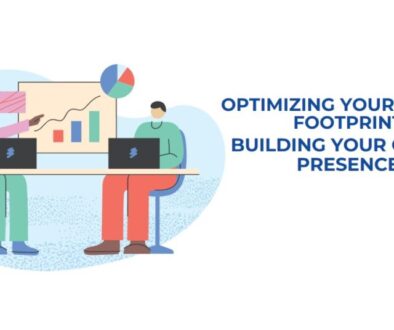How Technology is Revolutionizing Supply Chain Management
In recent years, technology has become the backbone of virtually every industry, reshaping how businesses operate and compete. One sector that has witnessed a dramatic transformation is supply chain management. Integrating cutting-edge technologies such as artificial intelligence (AI), automation, and big data analytics has opened up new possibilities, enabling businesses to improve efficiency, reduce costs, and enhance decision-making processes. Central to this revolution is the role of demand forecasting software, a tool that has redefined how companies predict customer demand and optimize inventory levels.
The Impact of Automation and AI in Supply Chain Management

Automation and Artificial intelligence, or AI, are among the most significant milestones in supply chain management. Robotic solutions replace monotonous tasks that used to be performed by people and include sorting, packing, and stock management. Automated systems in business organizations greatly minimize human errors, increase task completion rate, and decrease expenses. For instance, RPA is currently used in warehouses to pick and pack products accurately to deliver faster and with fewer errors.
AI, however, has been transformative in enhancing decision-making in supply chain networks. It also uses complex analysis of large data sets presented in real-time consumer trends and behavior patterns. This makes it possible for businesses to change their supply chain strategies in the shortest time possible. AI can estimate when a particular product type is more likely to be in high or low demand, so businesses don’t have to overstock or understock products.
In addition, artificial intelligence in chatbots and virtual assistants has opened new interaction possibilities within supply chains. Such tools can address various queries from suppliers, customers, and even the logistics department, providing real-time responses and solutions without necessarily involving human beings. By doing so, businesses can enhance the flow of information to and from other players in the supply chain, thus avoiding information blockages that may slow down the entire chain.
Big Data and Analytics: A Game-Changer for Demand Forecasting
Another essential technological advancement in supply chain management is big data. Supply chains create massive amounts of data every day, ranging from the number of products being transported to the time it takes to transport goods. Traditionally, most of this data went underutilized, but with the help of modern analytical tools, companies can now use such information to arrive at crucial decisions.
This way, big data analytics helps supply chain managers gain deeper insights into different parameters that were impossible to receive before. For instance, it is now possible for businesses within the supply chain to gather data from multiple points in the supply chain, including supplier satisfaction, transportation systems, and consumer buying behaviors. Such a level of analysis allows firms to manage all aspects of logistics, from procurement to delivering goods to consumers.
A significant application of big data analytics is in the area of demand forecasting. Businesses can foresee future demand more accurately by analyzing previous sales data, current tendencies in the market, and unrelated factors, including climate or economic situation. Demand forecasting software is one of the essential tools that can help firms manage inventories, guaranteeing adequate stock to satisfy customers’ needs without having to order too much stock and stuff the warehouses. In another way, accurate forecasting also helps manage production schedules since wrong supply and demand management can lead to huge losses.
Enhancing Logistics and Transportation through IoT

The IoT has also influenced the field of SCM, especially in the logistics and transportation industry. Applying IoT devices like GPS trackers, sensors, and RFID tags offers companies great insight into product movement as shipments are followed in real-time.
For instance, IoT sensors can transport perishable goods and check the temperature and humidity of the consignment upon entry into the market. GPS tracking devices enable shipment locations to be tracked to determine if there are any possible delays in the shipment. If so, the shipment can be redirected. Such a level of real-time visibility helps firms address problems promptly, thereby minimizing customers receiving damaged or nonexistent goods.
Moreover, IoT technology helps predict the maintenance of transportation fleets. Trucks, airplanes, or ships can have sensors that tell their condition, and the operators can act before the problem becomes grave. This not only helps to avoid the time when transportation assets are not in use but also increases their durability, which saves a lot of money for a company.
The Future of Supply Chain Management
The future of supply chain management seems even brighter as technology keeps improving. Blockchain, for example, is currently being piloted to increase transparency and security in the supply chain. Through the use of blockchain technology, businesses can develop records of every transaction that takes place in the supply chain so that they can confirm that goods were sourced legally. All the stakeholders will be held responsible.
Also, advancements in 5G technology are set to increase the speed of sharing real-time data in supply chains. Better and more efficient internet connections will enable businesses to access and share information naturally, thus enhancing the general flow of information across the different entities in the supply chain.
These are good inventions, though businesses should be ready to face the risks that come with them. While technology is being integrated into the supply chain, the latter is exposed to cyber risks. Thus, building up valuable and effective security measures will be an important factor in guaranteeing the continuous efficiency of supply chain activities in the context of increasing digitalization.
Conclusion
Undoubtedly, technology is revolutionizing the supply management process by bringing in higher efficiency, accuracy, and visibility. These technologies, ranging from automation and AI to big data analytics and IoT, are disrupting every link in the supply chain and providing businesses with greater efficiency, lower costs, and a better ability to meet customer needs. As more organizations adopt these innovations, the future of supply chain management has never looked brighter—where technology brings simplicity to the complicated and the improbable to the probable.



